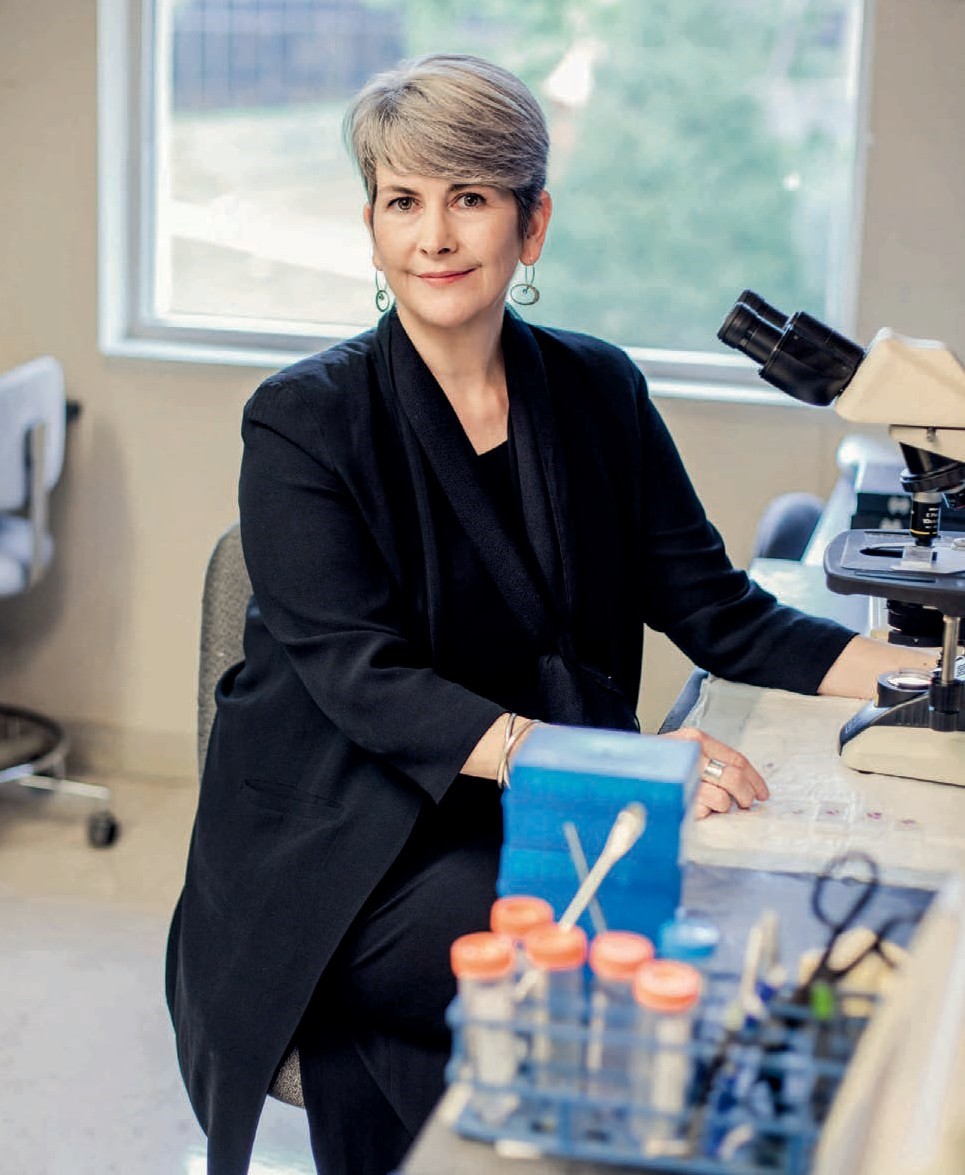Although she has worked at Fox Chase Cancer Center for two decades, Denise Connolly doesn’t often get to meet the patients undergoing treatment two floors below her lab.
Connolly’s research is focused on gynecologic malignancies, specifically ovarian cancer – the most lethal, though not the most com- mon gynecologic cancer. Some of the most fundamental questions about ovarian cancer remain unanswered, including where and how many of the tumors originate.

"Ovarian cancer doesn't behave like other cancers in a lot of ways,” she said. “Not understanding the tumor origin, you’re kind of behind the 8 ball. Understanding where a tumor is developing may allow us to explore different, more effective treatment options.” Long interested in science and the natural world, Connolly earned her PhD in microbiology. She felt drawn to disease research and completed two postdoctoral fellowships: one in cancer biology at the Mayo Clinic in Rochester, Minnesota and a second in molecular pathology focusing on gynecologic malignancies at Johns Hopkins in Baltimore.
“I grew up in a time when there was a lot of research focus on men,” she said. “A lot of women were excluded and I thought it wasn’t fair that our diseases hadn’t been studied.” The origin of ovarian cancers has been a subject of intense study for more than a decade. Some cancers that are diagnosed as ovarian actually originate in the fallopian tube. Connolly recently received $170,000 from the Bucks County Chapter of the Fox Chase Board of Associates to further this work, using unique mouse models developed in her laboratory to look into basic cellular signaling pathways, how those pathways may change, and why cancer cells originating in the fallopian tube travel to the ovary and present as primary ovarian cancer.
“Why do these cells have such a strong tendency to travel to the ovary and present as primary ovarian cancer?” Connolly said. “With the grant we’re exploring ways to further understand the biology of the fallopian tubes.”
Connolly has led the way in changing how ovarian cancer is understood. Her lab pioneered the first transgenic mouse model that develops spontaneous ovarian carcinomas, making it easier for scientists everywhere to study ovarian cancers. They also found that what seemed to be ovarian tumors were originating in the oviduct – the mouse equivalent of the fallopian tube.
Dawn Byers is not a scientist, but she has been asking many of the same questions as Connolly. After a string of doctors misdiagnosed her symptoms as menopause, Celiac disease, and even a prolapsed uter- us, Byers finally came to Fox Chase, where she was diagnosed with ovar- ian cancer. After starting treatment two floors below Connolly’s lab, Byers learned her ovarian cancer had originated in the fallopian tube.
Frustrated by the meandering path that led to her diagnosis, Byers knew she wanted to help others. “I don’t want any other woman to have a late-stage diagnosis like I did,” she said. “I vowed I would spend the rest of my life finding a way to make sure other women don’t go through that.”
Byers called Connolly out of the blue to see if they could help each other. After that first phone call, Connolly invited Byers to tour her lab and see first-hand how she and her team try to better understand cancer and ultimately make it possible to develop more effective treatments.
The Byers family has long supported the Bucks County Chapter of the Board of Associates. When Byers was diagnosed in 2017, the Chapter had already decided to fundraise for Connolly’s ovarian cancer research. So Byers turned to friends and family, and together with the Board members, they raised enough money to support the project for a full year. “It’s going to get her to the next level,” Byers said. “We know that some of the answers and solutions we seek may still be years away. But if you don’t start, you’ll never get there.”